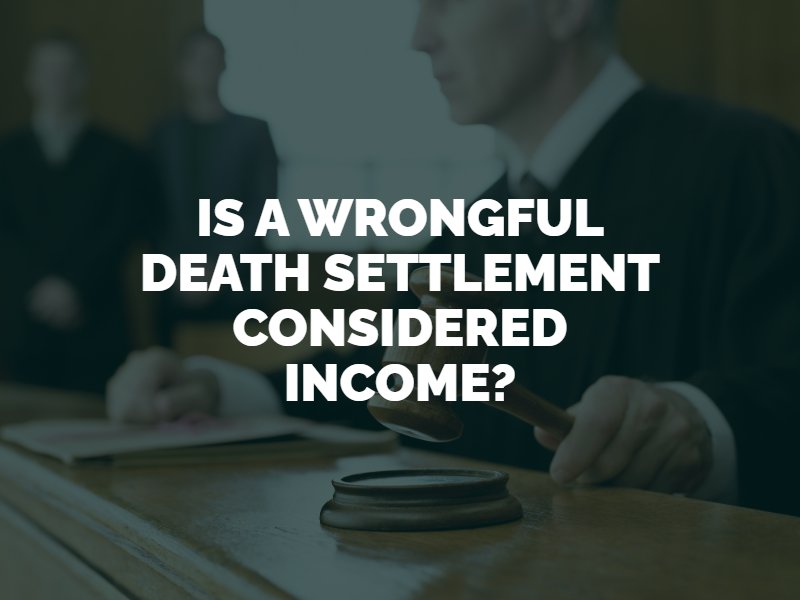A successful wrongful death claim in Colorado could result in a sizable settlement for you and your family. If you recover financial compensation in a wrongful death settlement, you may wonder if you legally must claim this money as income for tax purposes. In Colorado, wrongful death settlements generally are not considered income. If you are struggling with this situation, contact our wrongful death attorney in Denver to learn more about what you can do.

According to the Internal Revenue Service (IRS) General Guidelines, compensation gained for injuries or sickness does not count as gross income for tax purposes. Any “damages received on account of personal physical injuries” are not included in an individual’s income.
Internal Revenue Code (IRC) Section 104(a)(2) permits a taxpayer to exclude from gross income “the amount of any damages (other than punitive damages) received (whether by suit or agreement and whether as lump sums or as periodic payments) on account of personal injuries or physical sickness.”
These tax laws apply to settlements received for wrongful death claims, as well. Personal injury and wrongful death settlements that involve physical injuries or illnesses do not need to be reported as income to the IRS. However, there is an exception for punitive damages.
The IRS has clear guidelines regarding which types of legal settlements are taxable and which are nontaxable. Punitive damage awards are taxable. In Colorado, punitive damages are sometimes awarded in personal injury and wrongful death claims as a form of punishing a defendant for especially egregious acts of wrongdoing or gross negligence.
If a plaintiff can show that the defendant’s actions in connection to the wrongful death involved fraud, malice, or willful and wanton conduct, a judge may award punitive damages in addition to compensatory damages. Under the IRS guidelines, punitive damages are included in gross income, with one exception.
If under state law the wrongful death statute only allows for the recovery of punitive damages, IRS Section 104(c) allows for the exclusion of punitive damages as income for tax purposes. However, Colorado is not one of these states. Colorado law allows for the recovery of compensatory and punitive damages in a wrongful death case, meaning that any punitive damages awarded would not be taxable.
If a wrongful death settlement includes damages for a deceased person’s medical expenses from the date of the accident to the date of death, they are nontaxable as long as the same expenses were not listed as an itemized deduction in previous tax years. If the individual listed the medical costs related to the injury or illness as a deduction, this portion of the wrongful death settlement will be subject to taxation.
Pain and suffering damages (also known as noneconomic damages) are excluded from gross income on taxes as long as they are attributed to physical injuries or sickness. Compensation awarded for pain and suffering alone, without being connected to any personal injuries or illnesses, is not excluded from income.
Under this rule, if a beneficiary receives compensation for the deceased person’s pain and suffering related to the fatal injury or illness, this will not be taxable. However, if the surviving spouse or heirs of the deceased person receive compensation for their own pain, suffering and emotional stress, this portion of the settlement will classify as taxable income.
Wrongful death settlement taxation is a complicated subject. For personalized information about how your settlement might be taxed, contact us at Fang Accident Lawyers for a free consultation.